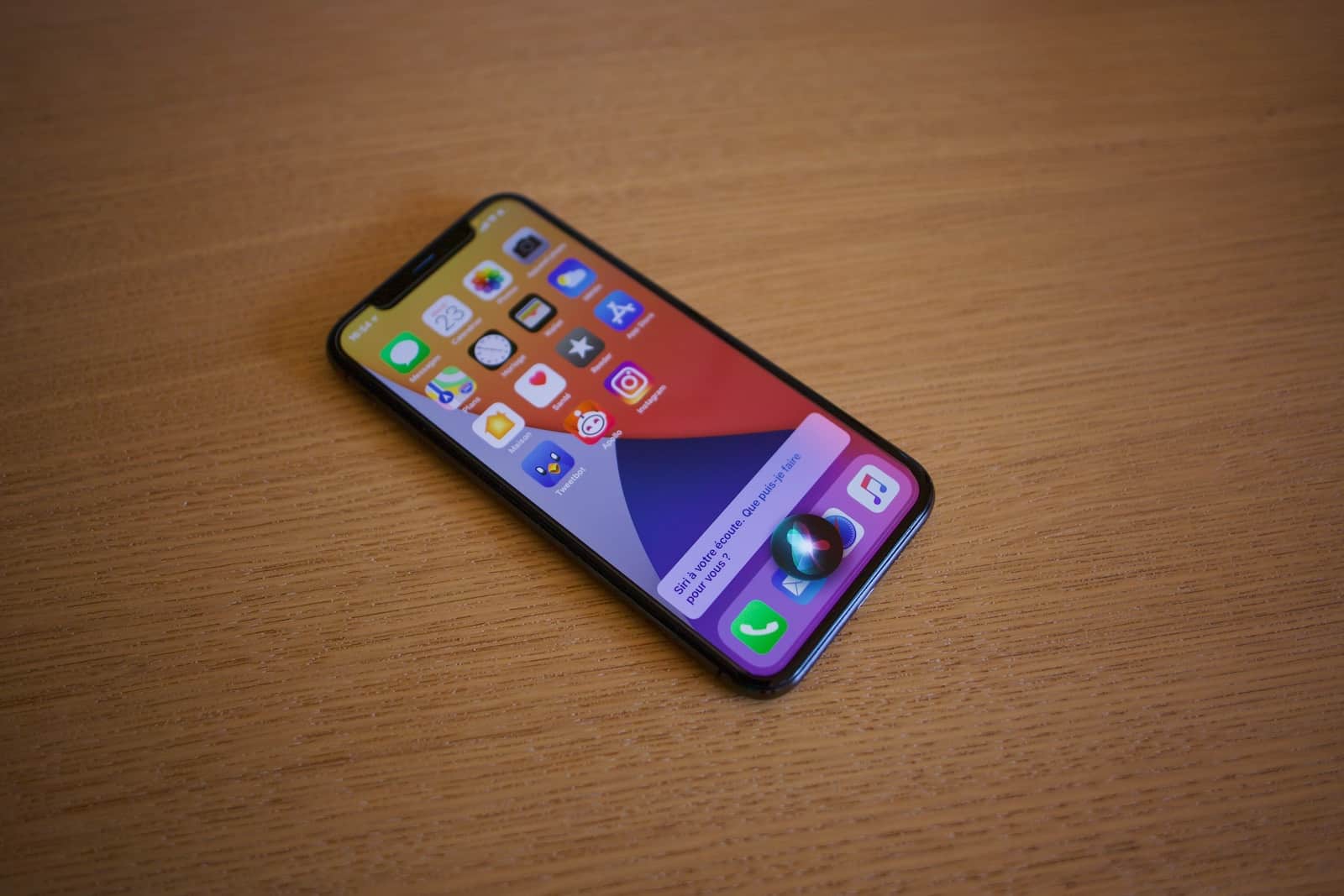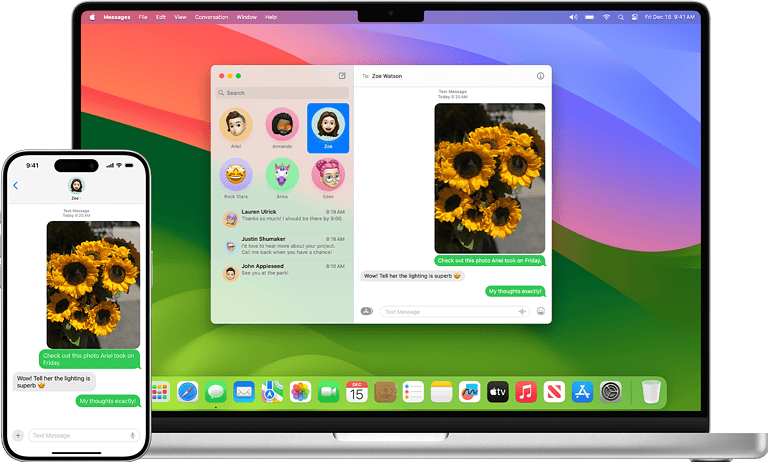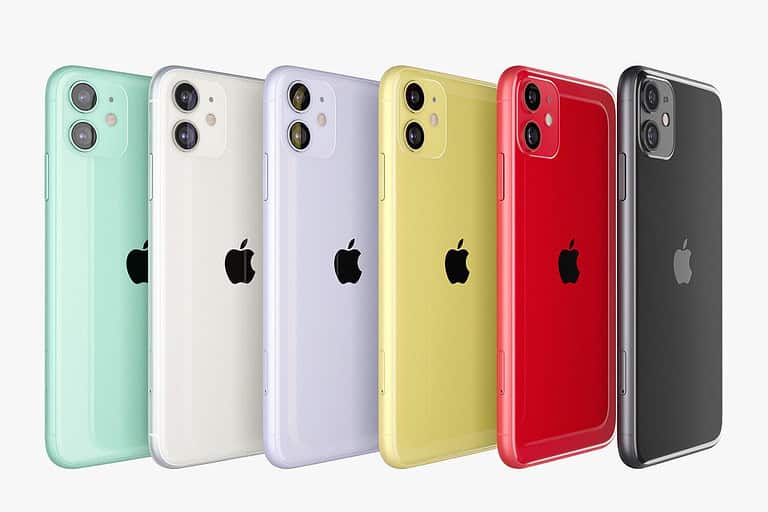
Apple’s digital assistant, Siri, has changed how we use our devices. It started at SRI International and is now in millions of Apple products. Siri’s history, development, and impact on technology is explored in this detailed account, showcasing its influence on today’s technology landscape.
The Start of Siri: A Breakthrough in AI
Origins at SRI International and DARPA’s Involvement
Siri’s journey began as a spin-out from the SRI International Artificial Intelligence Center, an initiative partly funded by the US Defense Advanced Research Projects Agency’s (DARPA) CALO project. The project’s aim was ambitious: to create an AI capable of understanding and executing voice commands with unprecedented accuracy.
Facts about Siri’s Early Development:
- Founders: Dag Kittlaus, Tom Gruber, and Adam Cheyer.
- Name Origin: Siri, meaning “beautiful victory” in Old Norse, was named after a co-worker in Norway.
- Key Technology: The NABC Framework was used to define Siri’s value proposition.

Siri’s Ongoing Journey: The Latest and Greatest
Recent Updates: Siri Gets Smarter
Siri has come a long way since its debut. In recent years, Apple has been busy making it even more helpful and intelligent. Here are some of the latest improvements:
- Apple Intelligence: This is a fancy way of saying Siri got a brain boost. It can now understand more complex requests, even if you don’t speak perfectly clearly. It can also do more within apps, like updating your contacts or creating photo albums.
- Natural Language Processing: Siri’s voice sounds much more natural now, less like a robot and more like a human.
- Redesigned Interface: Siri has a fresh new look that’s more modern and easier to use.
- Typing to Siri: Don’t want to talk out loud? You can now type your requests to Siri instead.
- AirPods Pro (2nd generation) Interactions: If you have the latest AirPods Pro, you can respond to Siri with just a nod or shake of your head.
- Improved Offline Functionality: Even without internet access, Siri can still do some things, like setting alarms or timers.
Accessibility: Making Tech More Inclusive
Siri isn’t just about convenience; it’s also a powerful tool for accessibility.
- Helping Those with Disabilities: Siri can be a game-changer for people with visual impairments, limited mobility, or other disabilities. It allows them to control their devices and access information using just their voice.
- Voice Control: This feature lets you control your entire device with voice commands, navigating menus, typing text, and more.
- VoiceOver: This screen reader describes what’s on your screen, making it accessible to people who are blind or have low vision.

Siri’s Ecosystem: Connected to Your Apple World
Siri is deeply integrated with other Apple services, making your experience smoother.
- Apple Music: Ask Siri to play your favorite songs, albums, or playlists. You can even ask it to play music based on your mood or activity.
- Apple Maps: Get directions, find places, and navigate with just your voice.
- Apple Pay: Make quick and secure payments with Siri.
- HomeKit: Control your smart home devices, like lights, thermostats, and locks, with Siri.
Privacy Matters: Keeping Your Data Safe
Apple takes privacy seriously, and Siri is designed with that in mind.
- On-Device Processing: Whenever possible, Siri processes your requests on your device, not on Apple’s servers. This means your data stays private and secure.
- Differential Privacy: This technique adds random noise to data that’s sent to Apple, making it harder to identify individual users.
Table: Siri’s Latest Features
| Feature | Description |
|---|---|
| Apple Intelligence | More complex requests, deeper app interaction, personalized responses |
| Natural Language Processing | More natural and human-like voice |
| Redesigned Interface | Modern and dynamic visual appearance |
| Typing to Siri | Type requests instead of speaking |
| AirPods Pro Interactions | Respond to Siri with nods and head shakes |
| Improved Offline Functionality | Perform some tasks without internet access |
Key Takeaways:
- Siri originated from SRI International and was part of DARPA’s CALO project.
- Nuance Communications played a crucial role in developing Siri’s speech recognition engine.
- Apple’s acquisition led to Siri’s integration into the iOS ecosystem, revolutionizing voice interaction.
Nuance Communications: Powering Siri’s Voice Recognition
The speech recognition engine, a critical component of Siri, was provided by Nuance Communications, a leader in speech technology. This partnership remained under wraps for years until confirmed by Nuance’s CEO in 2013. Their sophisticated machine learning techniques, including convolutional neural networks and long short-term memory, set a new standard in voice recognition.
Nuance’s Contributions:
- Confidential Partnership: Neither Apple nor Nuance acknowledged this collaboration for years.
- Advanced Techniques: Utilized convolutional neural networks and long short-term memory for voice recognition.
Apple’s Acquisition and Siri’s New Home
In April 2010, Apple Inc. acquired Siri, marking a significant milestone in the digital assistant’s journey. Under the guidance of Steve Jobs, Siri was integrated into Apple’s ecosystem, beginning a new era of voice-activated personal assistance.
Apple’s Role in Siri’s Development:
- Acquisition Date: April 2010.
- Integration into iOS: Marked the beginning of Siri as a native feature in Apple devices.
Siri’s Evolution: From Voice Commands to Intelligent Assistant
Early Features and Launch Capabilities
Siri’s initial launch on the iPhone 4S in 2011 was a game-changer. It offered users the ability to perform tasks like setting reminders, sending messages, and conducting internet searches, all through voice commands.
Initial Features of Siri:
- Tasks: Setting reminders, sending messages, internet searches.
- Impact: Revolutionized user interaction with mobile devices.

Integrating with Services and Expanding Capabilities
Over the years, Siri expanded its capabilities significantly. It integrated with various services such as Yelp, OpenTable, and Rotten Tomatoes, enhancing its utility in daily tasks. Features like social media posting, reading incoming messages, and opening apps were added, making Siri more versatile.
Expansion of Siri’s Capabilities:
- Integration with Services: Yelp, OpenTable, Rotten Tomatoes.
- New Features: Social media interaction, reading messages, app management.
Language Support and Voice Options
Siri’s language support and voice options have continually evolved. From the original American voice recorded by Susan Bennett to the introduction of different accents and dialects, Siri’s voice has become more inclusive and natural-sounding.
Siri’s Voice Evolution:
- Original Voice: Susan Bennett recorded the first American voice in 2005.
- Language Expansion: Support for multiple languages and dialects.
Siri’s Role in the Apple Ecosystem
Integration with Apple Devices
Siri’s integration extended beyond the iPhone to encompass other Apple devices like the iPad and Mac computers. The launch of macOS Sierra in 2016 included Siri, allowing users to interact with their Macs using voice commands.
Devices Featuring Siri:
- iPad: Siri was introduced on the third-generation iPad.
- Mac Computers: Integration with macOS Sierra.
SiriKit and Shortcuts: Enhancing User Experience
The introduction of SiriKit and the acquisition of the Workflow app, which was relaunched as Shortcuts, marked significant advancements in Siri’s functionality. These allowed users to create custom voice commands, enhancing the interactivity and personalization of Siri.
Key Developments in Siri’s Functionality:
- SiriKit: Enabled third-party app integration.
- Shortcuts: Allowed users to create custom voice commands.
Privacy and Security: Apple’s Priorities
Apple has been proactive in addressing privacy concerns related to digital assistants. Changes implemented in Siri, like processing user interactions on the device rather than on servers, signify Apple’s commitment to user privacy and security.
Privacy Measures in Siri:
- On-Device Processing: Enhances privacy by keeping interactions local to the device.
- User Privacy Focus: Reflects Apple’s commitment to user data security.
Siri’s Current Role in Apple’s Ecosystem
Siri has become an integral component of Apple’s ecosystem, embedded in various devices and offering seamless interactivity. Its integration with iOS, macOS, watchOS, and HomePod exemplifies Apple’s commitment to creating a unified and intuitive user experience. Siri’s ability to understand and respond to a wide array of commands and queries has made it an essential feature for Apple users worldwide.
Integration Highlights:
- Devices: iPhone, iPad, Mac, Apple Watch, HomePod.
- Capabilities: Voice commands, smart home control, information retrieval.
Latest Features and Updates
Over recent years, Siri has received numerous updates that have further enhanced its capabilities. These updates include improved speech recognition, more natural voice synthesis, and expanded language support. Siri’s integration with Apple Music and other Apple services has also evolved, offering users a more comprehensive and seamless experience.
Recent Siri Updates:
- Speech Recognition: Enhanced understanding of regional accents and dialects.
- Natural Voice Synthesis: More lifelike and diverse voice options.
- Language Support: Expanded to include more languages and dialects.
Siri and Artificial Intelligence
Siri’s development has been closely tied to advancements in artificial intelligence (AI). Utilizing machine learning and natural language processing techniques, Siri has continually improved its ability to understand and anticipate user needs. These AI-driven capabilities have not only enhanced Siri’s functionality but also paved the way for further innovations in AI technology.
AI Contributions to Siri:
- Machine Learning: Enhanced learning from user interactions.
- Natural Language Processing: Improved understanding of user queries.
Siri’s Impact on Technology and Society
Changing Human-Device Interaction
Siri has significantly changed how people interact with their devices. By enabling voice-driven commands and responses, Siri has made technology more accessible and user-friendly, especially for those with physical limitations or disabilities.
Impact on Interaction:
- Accessibility: Easier access for users with physical limitations.
- Convenience: Voice commands simplify the use of technology.
Influencing AI Development
Siri’s success has influenced the development of AI across various industries. Its underlying technologies, such as natural language processing and machine learning, have become fundamental in developing virtual assistants and chatbots across different sectors.
Influence on AI Technology:
- Virtual Assistants: Pioneered the development of voice assistants in consumer technology.
- Chatbots: Inspired AI-driven customer service solutions.
Privacy and Data Security Concerns
While Siri has brought numerous benefits, it has also raised concerns about privacy and data security. Apple’s approach to addressing these concerns, such as processing data on the device rather than on servers, reflects a growing awareness and commitment to protecting user privacy in the digital age.
Privacy and Security Measures:
- On-Device Processing: Limits data exposure by processing requests locally.
- Commitment to Privacy: Apple’s ongoing efforts to protect user data.
FAQs
How Does Siri Process Voice Commands?
Siri uses advanced machine learning and natural language processing techniques to understand and respond to voice commands. The processing primarily occurs on the device to ensure privacy.
Can Siri Work With Third-Party Apps?
Yes, with the introduction of SiriKit, developers can integrate Siri into their apps, allowing users to interact with these apps through Siri.
What Languages Does Siri Support?
Siri supports multiple languages and dialects, continually expanding to include more regional languages and accents.
Is Siri Available on All Apple Devices?
Siri is available on most modern Apple devices, including iPhones, iPads, Macs, Apple Watches, and the HomePod.





